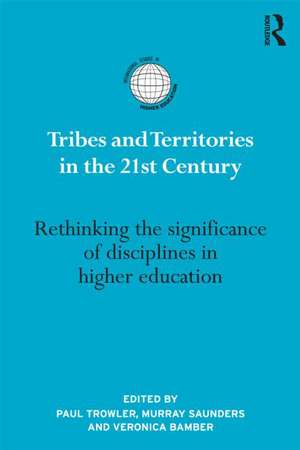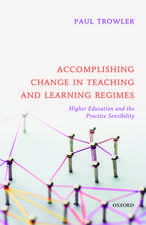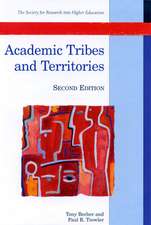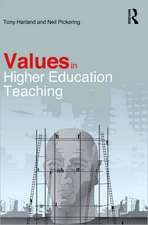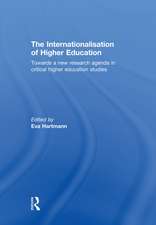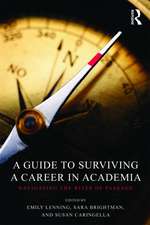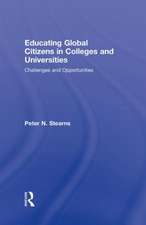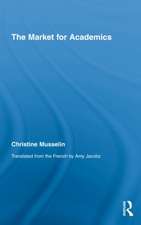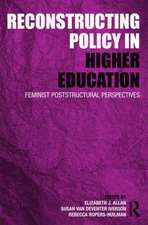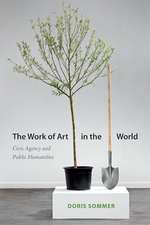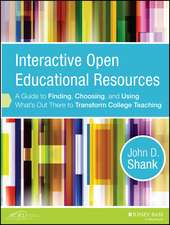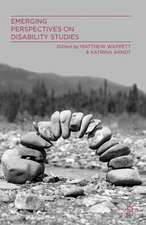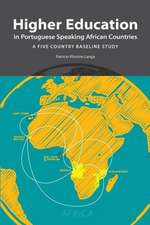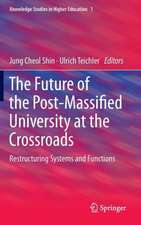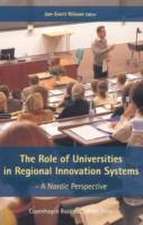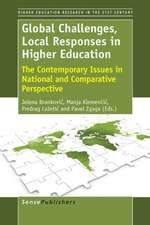Tribes and Territories in the 21st Century: Rethinking the significance of disciplines in higher education: International Studies in Higher Education
Editat de Paul Trowler, Murray Saunders, Veronica Bamberen Limba Engleză Hardback – 11 ian 2012
Using a social practice approach, the editors and contributors argue that disciplines are alive and well, but that in a turbulent environment where many other forces conditioning academic practices exist, their influence is generally weaker than before. However, the social practice approach adopted in the book highlights how this influence is contextually contingent – how disciplines are deployed in different ways for different purposes and with varying degrees of purchase.
This important book pulls together the latest thinking on the subject and offers a new framework for conceptualising the influences on academic practices in universities. It brings together a distinguished group of scholars from across the world to address questions such as:
- Have disciplines been displaced by inter-disciplinarity, having outlived their usefulness?
- Have other forces acting on the academy pushed disciplines into the background as factors shaping the practices of academics and students there?
- How significant are disciplinary differences in teaching and research practices?
- What is their significance in other areas of work in universities?
| Toate formatele și edițiile | Preț | Express |
|---|---|---|
| Paperback (1) | 481.38 lei 43-57 zile | |
| Taylor & Francis – 23 dec 2013 | 481.38 lei 43-57 zile | |
| Hardback (1) | 1331.27 lei 43-57 zile | |
| Taylor & Francis – 11 ian 2012 | 1331.27 lei 43-57 zile |
Din seria International Studies in Higher Education
-
 Preț: 401.92 lei
Preț: 401.92 lei -
 Preț: 481.38 lei
Preț: 481.38 lei -
 Preț: 417.81 lei
Preț: 417.81 lei -
 Preț: 478.51 lei
Preț: 478.51 lei - 14%
 Preț: 318.90 lei
Preț: 318.90 lei -
 Preț: 402.66 lei
Preț: 402.66 lei -
 Preț: 479.47 lei
Preț: 479.47 lei -
 Preț: 489.03 lei
Preț: 489.03 lei -
 Preț: 424.17 lei
Preț: 424.17 lei -
 Preț: 465.85 lei
Preț: 465.85 lei -
 Preț: 482.35 lei
Preț: 482.35 lei -
 Preț: 321.08 lei
Preț: 321.08 lei -
 Preț: 393.05 lei
Preț: 393.05 lei -
 Preț: 487.75 lei
Preț: 487.75 lei -
 Preț: 478.41 lei
Preț: 478.41 lei -
 Preț: 481.05 lei
Preț: 481.05 lei -
 Preț: 420.90 lei
Preț: 420.90 lei -
 Preț: 400.01 lei
Preț: 400.01 lei -
 Preț: 453.89 lei
Preț: 453.89 lei -
 Preț: 479.47 lei
Preț: 479.47 lei -
 Preț: 482.35 lei
Preț: 482.35 lei -
 Preț: 422.59 lei
Preț: 422.59 lei -
 Preț: 481.81 lei
Preț: 481.81 lei - 17%
 Preț: 258.50 lei
Preț: 258.50 lei -
 Preț: 479.69 lei
Preț: 479.69 lei - 18%
 Preț: 1004.38 lei
Preț: 1004.38 lei -
 Preț: 420.69 lei
Preț: 420.69 lei
Preț: 1331.27 lei
Preț vechi: 1623.50 lei
-18% Nou
Puncte Express: 1997
Preț estimativ în valută:
254.73€ • 266.68$ • 210.78£
254.73€ • 266.68$ • 210.78£
Carte tipărită la comandă
Livrare economică 07-21 aprilie
Preluare comenzi: 021 569.72.76
Specificații
ISBN-13: 9780415880626
ISBN-10: 0415880629
Pagini: 312
Ilustrații: 5 b/w images and 7 tables
Dimensiuni: 152 x 229 x 19 mm
Greutate: 0.58 kg
Ediția:1
Editura: Taylor & Francis
Colecția Routledge
Seria International Studies in Higher Education
Locul publicării:Oxford, United Kingdom
ISBN-10: 0415880629
Pagini: 312
Ilustrații: 5 b/w images and 7 tables
Dimensiuni: 152 x 229 x 19 mm
Greutate: 0.58 kg
Ediția:1
Editura: Taylor & Francis
Colecția Routledge
Seria International Studies in Higher Education
Locul publicării:Oxford, United Kingdom
Cuprins
1. Introduction: overview of thinking to date about disciplinary differences, Trowler
2. Academic practices as social practice, Trowler, Saunders and Bamber
Section I. Disciplinary differences and research practices
Section I. Top – Introduction to the four contributory chapters in this section, Trowler (UK)
1a. Disciplinary differences in research: metaphors and practices, Angela Brew (Australia)
1b. The meaning of ‘research’ in the disciplines; the case of art and design, Trowler (UK)
1c. Research in a specific subject area, (a non-UK country)
1d. Research in a specific subject area, (a non-UK country)
Section I. Tail – Commentary on the four chapters from a social practice perspective, applying the principles set out at the end of chapter 2, Trowler (UK)
Section II. Disciplinary differences and learning and teaching practices
Section II. Top – Introduction to the four contributory chapters in this section, Bamber
2a. Learning and teaching practices in Law, Fiona Cownie (UK and USA)
2b. Learning and teaching practices in engineering, Quinlan (Australia)
2c. The use of learning technologies in physics, divinity and ved med in their first year, Judy Hardy (Scotland – the LEAD project)
2d. Signature pedagogies in vocational disciplines, Shulman (USA)
Section II. Tail – Commentary on the four chapters from a social practice perspective, applying the principles set out at the end of chapter 2, Bamber
Section III. Disciplinary differences as an organizing principle
Section III. Top – Introduction to the four contributory chapters in this section, Trowler (UK)
3a. Learning and teaching across the disciplines, Ruth Neumann (Australia)
3b. From modes I and II to mode III, Gary Rhoades (USA)
3c. Interdisciplinarity as an organizing device, (a non-UK country)
3d. Managerialism and the decline of donnish dominion, Rosemary Deem (UK)
Section III. Tail – Commentary on the four chapters from a social practice perspective, applying the principles set out at the end of chapter 2, Trowler (UK)
Section IV. Conceptualising the drivers of academic practices
Section IV. Top – Introduction to the four contributory chapters in this section, Saunders (UK)
4a. Lecturers’ pedagogical constructs, Joelle Fanghanel (UK)
4b. Communities of practice, assessment practices, Suellen Shay (South Africa)
4c. Discourse and practices, Christina Winberg (South Africa)
4d. Moral orders of study, Oili-Helena Ylijoki (Finland)
Section IV. Tail – Commentary on the four chapters from a social practice perspective, applying the principles set out at the end of chapter 2, Murray (UK)
Concluding Chapter. Rethinking tribes and territories: a social practice approach, Trowler, Bamber and Saunders
2. Academic practices as social practice, Trowler, Saunders and Bamber
Section I. Disciplinary differences and research practices
Section I. Top – Introduction to the four contributory chapters in this section, Trowler (UK)
1a. Disciplinary differences in research: metaphors and practices, Angela Brew (Australia)
1b. The meaning of ‘research’ in the disciplines; the case of art and design, Trowler (UK)
1c. Research in a specific subject area, (a non-UK country)
1d. Research in a specific subject area, (a non-UK country)
Section I. Tail – Commentary on the four chapters from a social practice perspective, applying the principles set out at the end of chapter 2, Trowler (UK)
Section II. Disciplinary differences and learning and teaching practices
Section II. Top – Introduction to the four contributory chapters in this section, Bamber
2a. Learning and teaching practices in Law, Fiona Cownie (UK and USA)
2b. Learning and teaching practices in engineering, Quinlan (Australia)
2c. The use of learning technologies in physics, divinity and ved med in their first year, Judy Hardy (Scotland – the LEAD project)
2d. Signature pedagogies in vocational disciplines, Shulman (USA)
Section II. Tail – Commentary on the four chapters from a social practice perspective, applying the principles set out at the end of chapter 2, Bamber
Section III. Disciplinary differences as an organizing principle
Section III. Top – Introduction to the four contributory chapters in this section, Trowler (UK)
3a. Learning and teaching across the disciplines, Ruth Neumann (Australia)
3b. From modes I and II to mode III, Gary Rhoades (USA)
3c. Interdisciplinarity as an organizing device, (a non-UK country)
3d. Managerialism and the decline of donnish dominion, Rosemary Deem (UK)
Section III. Tail – Commentary on the four chapters from a social practice perspective, applying the principles set out at the end of chapter 2, Trowler (UK)
Section IV. Conceptualising the drivers of academic practices
Section IV. Top – Introduction to the four contributory chapters in this section, Saunders (UK)
4a. Lecturers’ pedagogical constructs, Joelle Fanghanel (UK)
4b. Communities of practice, assessment practices, Suellen Shay (South Africa)
4c. Discourse and practices, Christina Winberg (South Africa)
4d. Moral orders of study, Oili-Helena Ylijoki (Finland)
Section IV. Tail – Commentary on the four chapters from a social practice perspective, applying the principles set out at the end of chapter 2, Murray (UK)
Concluding Chapter. Rethinking tribes and territories: a social practice approach, Trowler, Bamber and Saunders
Recenzii
Mary Taylor Huber, Senior Scholar, The Carnegie Foundation for the Advancement of Teaching
Yes, it’s timely. I agree with the editors that it would continue to be considered so for about ten years. If the authors are clever enough in picking up on the trends, it could continue to be consulted after that.
Again, it is hard to comment without abstracts of the chapters. I think the book’s main appeal will be its comprehensive look at the disciplines roles in research, teaching, organization, and contributing to academic thought and practice.
In the US, readers from the primary audience are likely to be members of the American Education Research Association (AERA), the Association for the Study of Higher Education (ASHE), and the Professional and Organizational Development Network (POD).
The editors are right: it could be interesting to consider the current situation in light of Becher’s very widely read Academic Tribes and Territories (1989). However, I have some concern that the emphasis on a "social practice" approach may overload what a relatively short edited book can comfortably carry. They’ve got policy change, disciplinary differences, and national inflections already in play.
Rob Cuthbert, Professor of Higher Education Management, University of the West of England
1. Do the author(s)/editor(s) appear well qualified to write/edit the book?
Yes. They are an established team with a range of expertise which is well-suited to the task. Paul Trowler is worldwide probably the best-known living author on this topic, as well as having done more of the best research in the area than anyone else.
The more I reflect on the proposal, the more I feel that a really definitive work would be more likely if it were not an edited collection but an authored book. As it stands, the authors will have to work hard to persuade their many suggested leading contributors to fit into their fairly tight schema. And the results might not add a great deal to the overall force of the argument.
I recommend this book for publication, preferably if it could become an authored book rather than an edited collection. Even if the authors won’t budge, I still recommend it for publication. I would use it (a lot) in either case.
Yes, it’s timely. I agree with the editors that it would continue to be considered so for about ten years. If the authors are clever enough in picking up on the trends, it could continue to be consulted after that.
Again, it is hard to comment without abstracts of the chapters. I think the book’s main appeal will be its comprehensive look at the disciplines roles in research, teaching, organization, and contributing to academic thought and practice.
In the US, readers from the primary audience are likely to be members of the American Education Research Association (AERA), the Association for the Study of Higher Education (ASHE), and the Professional and Organizational Development Network (POD).
- Can you comment on the sales potential for this book, and whether it would be likely to sell copies outside of the UK (Australia, US, Canada, Europe, S. Africa)?
The editors are right: it could be interesting to consider the current situation in light of Becher’s very widely read Academic Tribes and Territories (1989). However, I have some concern that the emphasis on a "social practice" approach may overload what a relatively short edited book can comfortably carry. They’ve got policy change, disciplinary differences, and national inflections already in play.
Rob Cuthbert, Professor of Higher Education Management, University of the West of England
1. Do the author(s)/editor(s) appear well qualified to write/edit the book?
Yes. They are an established team with a range of expertise which is well-suited to the task. Paul Trowler is worldwide probably the best-known living author on this topic, as well as having done more of the best research in the area than anyone else.
The more I reflect on the proposal, the more I feel that a really definitive work would be more likely if it were not an edited collection but an authored book. As it stands, the authors will have to work hard to persuade their many suggested leading contributors to fit into their fairly tight schema. And the results might not add a great deal to the overall force of the argument.
I recommend this book for publication, preferably if it could become an authored book rather than an edited collection. Even if the authors won’t budge, I still recommend it for publication. I would use it (a lot) in either case.
Descriere
The 10th volume in the ground-breaking International Studies in Higher Education series, Tribes and Territories in Higher Education brings the latest thinking together with a new framework for understanding academic practices and research.
